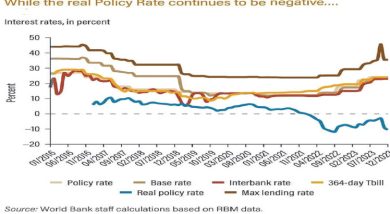Escom system fault Hits SMEs, consumers
For three days, small and medium enterprises (SMEs) have lamented loss of business following the collapse of the Electricity Supply Corporation of Malawi (Escom) pre-paid vending system.
On Sunday, Escom issued a statement indicating that to rectify the fault, the sole power supplier needed 48 hours from 6.47am that day, and this means the system was expected to be online last evening.
In an interview yesterday, Blantyre-based Siyalo Vilela, who owns Madalo Welding Shop in Ndirande Township, said since Sunday, operations at his workshop have been suspended, denying him and his workers an income.
He said: “I am failing to pay my workers who are paid on a daily basis. We can’t make any money because there is no electricity.”

His story mirrors what most of the SMEs plying their trade in poultry, butchery, salons, barbershops, perishable goods and welding. Households were also not spared from the impact of the shutdown.
Malawi Confederation of Chambers of Commerce and Industry president Lekani Katandula said in an interview yesterday they were yet to get feedback from the business community on the impact of the system shutdown.
But Chamber for Small and Medium Enterprises executive secretary James Chiutsi said yesterday that most micro-businesses live hand-to-mouth, as such, the disruption has caused untold misery and huge losses to small businesses.
He said: “Escom is a huge let down. Power happens to be a production element that affects every business, besides those ones using it directly.
“Small-scale production is so negatively affected though we can’t quantify the lost.”
In an interview yesterday, Escom public relations manager Kitty Chingota said they had made tremendous progress to put the system back to work by end of yesterday.
She said that though they were yet to quantify revenue lost due to the vending system malfunction, “we are losing revenue due to the fault on our vending system”.
Consumers Association of Malawi executive director John Kapito said it was unfornutate that having suffered for more than one year due to the Kapichira Hydro Power Station damage, consumers are now failing to access electricity due to system failure.
“We expected people in Escom to realise how much revenue they have lost over the last two years and begin to become a serious institution and instill confidence in investors and consumers,” he said.
Information and communications technology (ICT) expert Bram Fudzulani, who is also former ICT Association of Malawi president, observed that by investing in cutting-edge technologies and best practices, companies such as Escom can better protect themselves and their customers from disruptions and maintain a competitive edge in the marketplace.
He said: “The situation at Escom highlights the need for institutions to take a proactive and strategic approach to risk management, business continuity and revenue monitoring to ensure the resilience and sustainability of their operations.”





